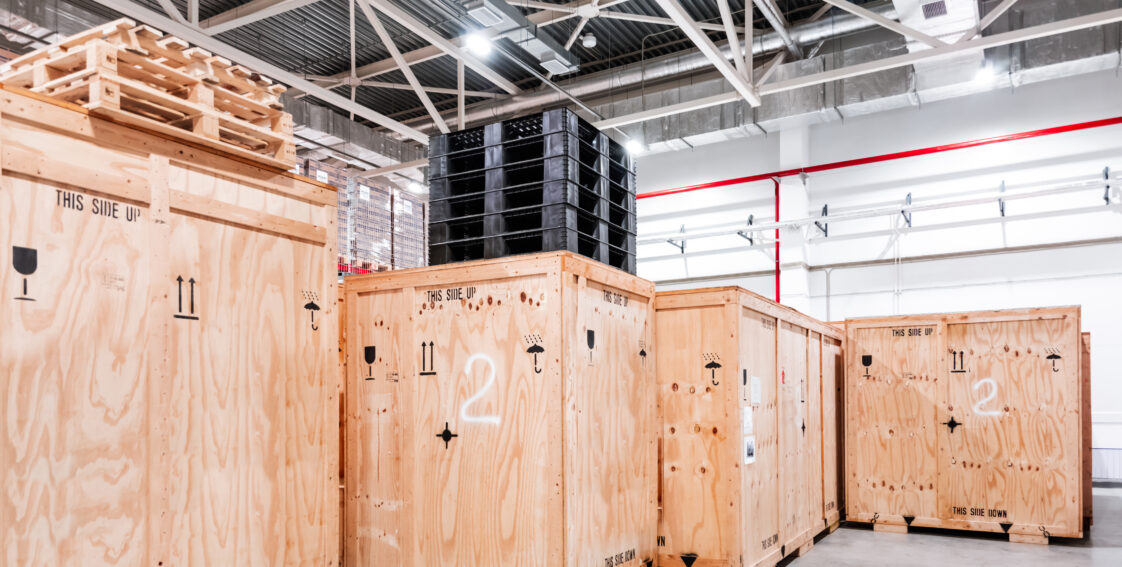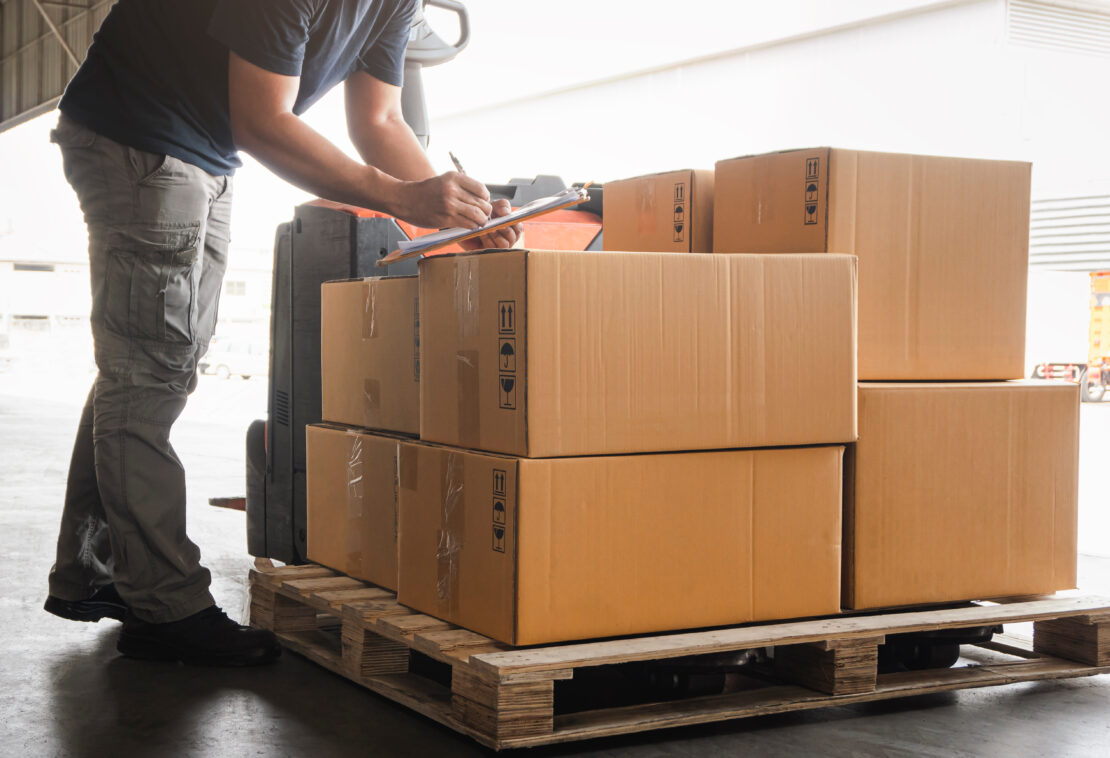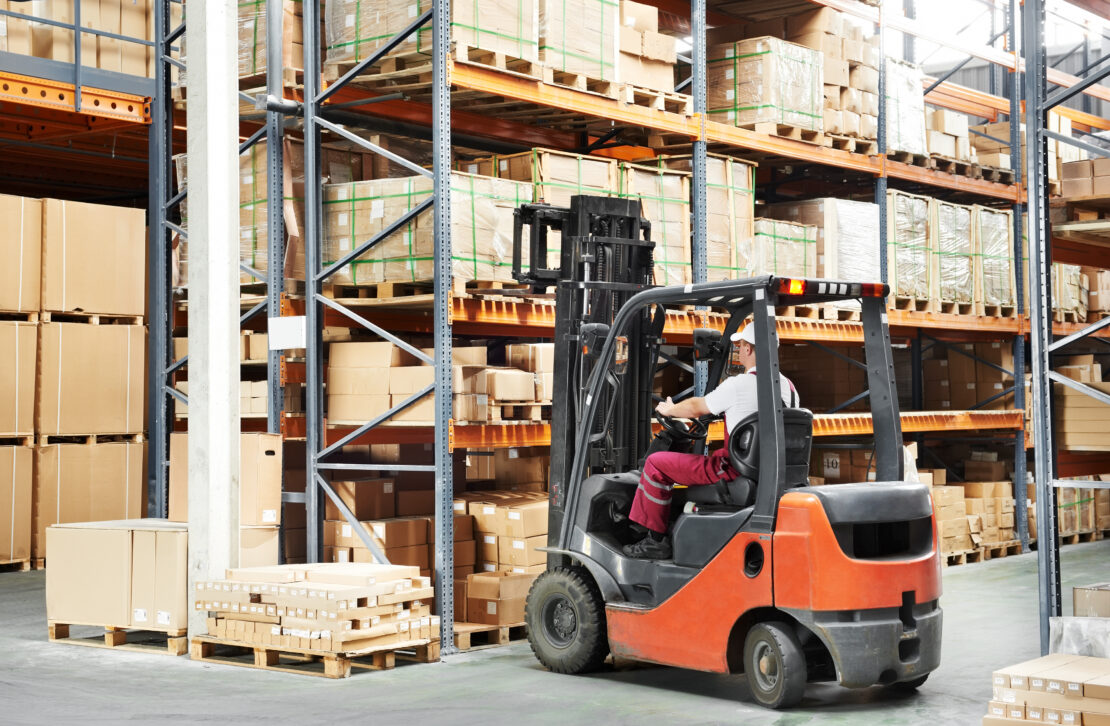
Industrial Packaging & Crating: 4 Best Practices
Industrial packaging is integral to the short- and long-term prosperity of manufacturers in all industries. That’s why decision-makers need to understand smart ways to package merchandise more securely for less money and without breaking federal regulations.
In this article, we’ll cover four effective industrial packaging practices that will help you protect your shipment, save money, and reduce compliance risks.
1. Evaluate the Items Being Shipped
You already know what types of items you’re shipping. However, there are some factors you’ll need to consider before you ship them, including:
- Can the items be safely broken down or disassembled?
- Can the item withstand exposure to natural elements?
- How much does the item weigh?
- Is the item fragile or hazardous?
- Are there any special modifications that need to be made during transportation?
These questions will help you determine what type of packaging is needed, which labels to add to your packaging, if special permits are required for transportation, and if certain components can be kitted to save money.
2. Get the Design Right
Shipping costs are determined by multiple factors, among them dimensional weight. Generally, the bigger and heavier items are, the more shipping will cost.
This is why it’s critical to design custom industrial packaging that fits the merchandise being shipped. Whether the product is being flown, shipped, driven, or railed, it will undergo the forces of wind, waves, and bumps along the way.
Each crate should be custom-fit for the product’s specific shape and dimensions, which reduces overall weight, size, and cost to ship and prevents the probability of shifting and potential damage during transit.
3. Take Material Selection Seriously

Selecting the right packaging material is also an important factor. Some of the most common materials used for industrial packaging are cardboard, plastic, wood, and steel.
Let’s quickly review each type:
Cardboard
- Simple to stack & store
- Reusable, renewable, & recyclable
- Flexible, inexpensive, & lightweight
- Easy to print branding logos & product information on
- Not as strong or sturdy as other crating materials
Plastic
- Difficult to recycle
- Lightweight & durable
- Most used packaging material
- Incredibly flexible & can conform to numerous properties
- Can be made heat- and/or chemical-resistant, transparent, or food-safe
Wood
- Crating can be made of softwood or hardwood
- Can be made into boxes, bins, drums, pallets, & more
- Can be reused for years & can be repaired when damaged
- One of the most environmentally friendly packaging materials
Steel
- Can be reused for decades
- Manufactured to tolerate harsh weather, rough handling, & extreme weight
4. Work With a Packaging Professional

Lastly, working with an industrial packaging company is the best way to ensure success. A packaging professional can help you save money by designing custom protective packaging for your unique items. They can also help you identify items that can be disassembled and/or kitted. And they can help you maintain compliance with federal regulations pertaining to domestic and international shipments, which can help you avoid expensive penalties.
Some key characteristics to look for when you’re searching for the best company to work with include:
- Industry Experience: The professionals you choose should have many years of experience designing and building custom packaging for companies within your industry. Additionally, if you’re a defense contractor, you’ll want to ensure the company understands military packaging standards and regulations.
- Certifications: Confirm that the company has the correct certifications. For example, if the company builds wooden industrial shipping crates, they must hold an ISPM 15 certification. Likewise, the packaging company must be SAM and ITAR registered if they serve defense contractors.
- Quality-Focused: How does the industrial packaging company maintain quality in their custom packaging? An ISO 9001 certification can be beneficial, as it highlights the company’s commitment to quality and data transparency.
- Customer Support: Read online reviews to learn more about past customers’ experiences with the company and how the company responds (or not) to these reviews.
- Capabilities: Is the company capable of creating packaging for your specific products? Additionally, how many items need to be packaged in a given week? Be sure the company you choose can handle the number of items you need packaged.
Get Industrial Packaging Assistance from Export Corporation
For over seven decades, Export Corporation has provided custom industrial packaging and crating solutions to automakers, military and aerospace contractors, and manufacturers. We also hold SAM and ITAR registrations and ISPM 15 and ISO 9001 certifications.
Please view our case studies to learn more about our impact on our customers, or contact us today to get started with a quote.
